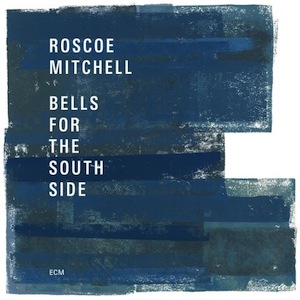Label/Year: Robalo Music, 2017
Lineup - André Matos: guitar; Yago Vazquez: piano, Fender Rhodes; Gonçalo Leonardo: bass; Tommy Crane: drums.
Eschewing hypothetical startles and unnecessary intricacies, East 97th, the encouraging debut album by the Portuguese bassist Gonçalo Leonardo, provides agreeable listenings through the aggregation of well-composed textures within clarified structures. The record was recorded in New York, where Leonardo lived for a couple of years, and features an international quartet comprising the also Portuguese André Matos on guitar, Spanish Yago Vazquez on piano and Rhodes, and American Tommy Crane on drums.
“Ó Calma Que Vai Caindo”, a traditional Portuguese folk song, opens the session with uncompromising subtlety and contemporary vein. The breathable movements bestow a monochromatic tone and dreamlike feel that is prolonged till the end. You’ll find bountiful interchanges between guitar and piano, which are amassed rather than run over each other.
The folk genre is revisited once more on the penultimate track, "Just a Folk Song", an original by Leonardo that flows unhurriedly with a 3/4 time signature.
Another ternary piece on the album, "Spring Beat", evinces strong connotations with the pop/rock universe and its lingering sounds feel easy on the ear.
“Ahead” is probably the boldest piece and kicks in with a vamp in which lush piano voicings are thrown against a one-note guitar ostinato. Matos’ melodies are slightly reminiscent of Abercrombie’s “Spring Song” while the rhythmic pulse mutates to support the improvisations of Vazquez and the bandleader.
Advancing with a laid-back beat and influenced by Western music, “Easy Going” is pampered by a pair of inspired improvisations, first from Vasquez, whose bluesy approach flourishes with a few outside escapades and soulful motifs, and then from the adventurous Matos, who boasts an inventive vocabulary while denoting a skilful handling of the guitar-effect unit.
“Anthracite” burns initially with Crane’s exciting drumming before entering into a state of melancholic limbo. It gains a temporary swinging flow for less than half a minute as Vasquez timidly steps forward.
“Train Talk”, serving as a vehicle for the bassist’s free rambles, and “Loken”, designed with bubbling vibes and mysterious tones, are no more and no less than spontaneous collective improvisations.
With East 97th, Leonardo crosses genres with a strong aesthetic vision, unveiling his relaxed nature through enjoyable compositions. His ideas are vividly expressed with the help of likes that clearly understood his communication processes.
Grade B+
Favorite Tracks:
02 – Ahead ► 03 – Easy Going ► 05 – Spring Beat








































